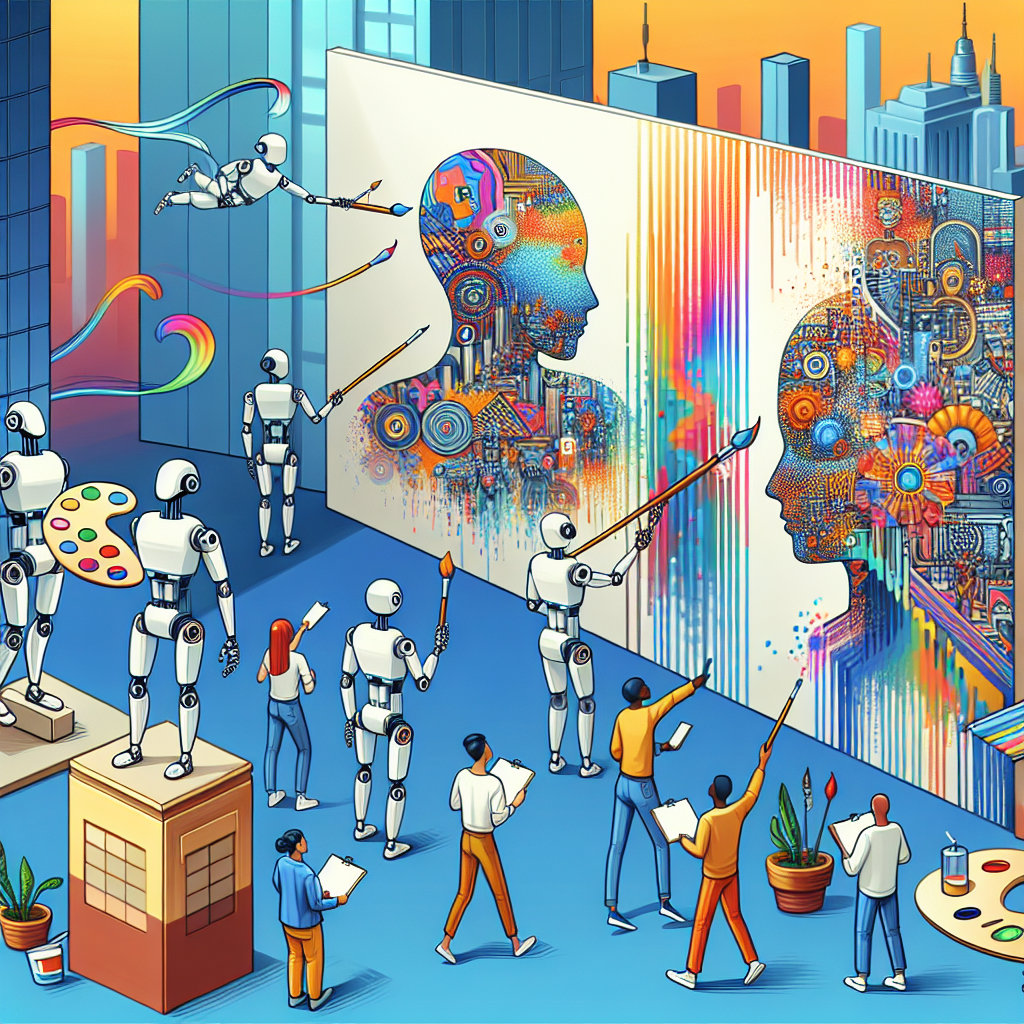In recent years, artificial intelligence (AI) has made significant advancements in various fields, including art, music, and literature. There has been a growing debate on whether AI can replace human creativity, as machines become more sophisticated and capable of producing creative works. While AI has shown promising results in generating creative content, there are still limitations to its capabilities compared to human creativity.
Can AI Replace Human Creativity?
AI has shown remarkable abilities in creating art, music, and literature that can rival works produced by humans. For example, AI algorithms have been used to create paintings, compose music, and even write novels. One of the most famous examples of AI creativity is Google’s DeepDream, which uses neural networks to create surreal and psychedelic images. Another example is the music generated by AI systems such as Jukedeck, which can compose music in various genres and styles.
AI has also been used to assist artists and musicians in their creative process. For example, AI algorithms can analyze large datasets of artworks or music to identify patterns and trends that can inspire new creations. AI can also generate ideas or suggestions for artists to explore further in their work. This collaborative approach between AI and humans has led to innovative and groundbreaking creative outputs.
While AI has shown potential in creative fields, there are still limitations to its capabilities compared to human creativity. One of the main challenges is the lack of emotional intelligence in AI systems. Human creativity is often driven by emotions, experiences, and personal interpretations of the world. AI systems, on the other hand, lack the ability to feel emotions or have personal experiences that shape their creative outputs.
Another limitation of AI creativity is the lack of intuition and spontaneity. Human creativity often involves intuitive leaps of imagination and the ability to think outside the box. AI systems, while capable of analyzing data and generating creative content based on patterns, struggle to make intuitive decisions or come up with truly original ideas that have not been seen before.
Furthermore, AI systems are limited by the data they are trained on. While AI algorithms can analyze vast amounts of data and learn from it, they are still constrained by the quality and diversity of the data they are exposed to. This can lead to biases in AI-generated content or limitations in the range of creative outputs that AI systems can produce.
Despite these limitations, AI has the potential to enhance human creativity and push the boundaries of what is possible in creative fields. By combining the strengths of AI and human creativity, new forms of art, music, and literature can be created that would not have been possible otherwise. AI can also help democratize creativity by making creative tools and resources more accessible to a wider audience.
FAQs
Q: Can AI truly be creative?
A: AI can mimic creative behaviors and generate creative content based on patterns and data it has been trained on. However, true creativity involves emotional intelligence, intuition, and the ability to think outside the box, which AI systems currently lack.
Q: Will AI replace human artists and musicians?
A: While AI can assist artists and musicians in their creative process, it is unlikely to replace human creativity entirely. Human creativity is driven by emotional intelligence, experiences, and personal interpretations of the world, which AI systems cannot replicate.
Q: How can AI enhance human creativity?
A: AI can enhance human creativity by providing new tools and resources for artists and musicians to explore. AI can analyze large datasets of creative works to identify patterns and trends that can inspire new creations. AI can also generate ideas or suggestions for artists to further develop in their work.
Q: Are there ethical concerns with AI-generated creative content?
A: There are ethical concerns with AI-generated creative content, such as biases in the data the AI systems are trained on or issues of ownership and attribution of AI-generated works. It is important to consider these ethical implications when using AI in creative fields.
In conclusion, while AI has shown promising results in generating creative content, there are still limitations to its capabilities compared to human creativity. AI can assist artists and musicians in their creative process and push the boundaries of what is possible in creative fields. By combining the strengths of AI and human creativity, new forms of art, music, and literature can be created that would not have been possible otherwise. It is important to continue exploring the possibilities of AI in creative fields while also considering the ethical implications and limitations of AI-generated content.

